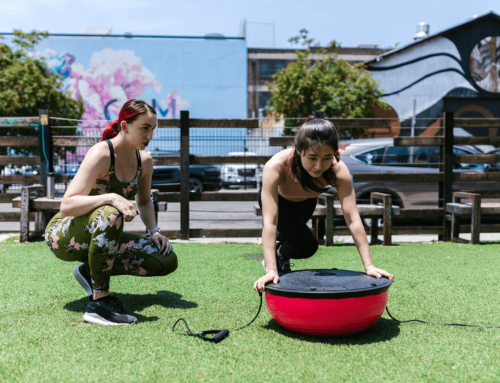The term “functional training” had been tossed around for more than a few decades. It was used to classify exercises that train for the body’s competency in performing normal daily activities. If that sounds like rehabilitation to you, that’s because it is. Except that it is marketed in a way that can be sold to the general public, and not just the injured or elderly who had lost a certain natural function of the body.
As the general public slowly caught up to the buzzword, new terms like “Functional Strength Training” and “Functional Fitness Training” appear.
Whenever I see the term “Functional _”,the question that comes to mind after all these years of studying and training with numerous movement specialists is actually quite funny.
“Is there actually a way to train dysfunctionally?”?
Before we tackle this, let us talk about why Functional Training sells. They are often defined as “necessities” in our daily lives; to get (back) a fit and able body. The exercises are also perceived to be more “fun” than the traditional, and usually more simplistic way of training.
As an athlete/coach who had trained under 2 China National Team level athletes/coaches in two different sport specialisation, I’ve seen my fair share of improvised/customised/out of the box exercises than you’ll ever see in 99.888% of the people in Singapore doing (the 0.112% being those that trains with them/me). These exercises are “fun” to the extent that they almost look stupid if you were to watch yourself doing it (and fumbled because they are so damn hard to get right).
And even though they’re fun to do/look at, they aren’t often prescribed throughout my training programs. Largely because there’s seldom a need for them. And in the event when such a need arises, that’s when the coaches will go and tinker and improvise something that works for that athlete and that’s how these exercises came about. They are NOT supposed to be a main form of training but only serves as a targeted supplement.
As with all supplements, they only work when there’s a deficiency.
2 statements for your thought:
- “All exercises are tools to get better at where you’re lacking.”
- “First, you need to know where you’re lacking, or if you are truly lacking.”
Instead of saying functional training is a marketing gimmick, I’m gonna end this post with this sincere piece of advice.
If you are in pain and feels dysfunctional in any daily movements, consult a doctor and get a referral to see a physiotherapist. Doctors can prescribe scans and medical interventions to diagnose and deal with pathological issues, and Physiotherapists are movement specialists who studied in depth the human anatomy and ways of restoring them to the norm.
At the end of the treatment chain, the physiotherapists can and should refer you to a qualified trainer whom he/she trusts to get you back to your norm and beyond.
Here’s hoping you getting the help you need and becoming stronger, fitter than ever!
Coach Kae
Recommended Physiotherapists:
Soak Yee and GiGi of The Physio Partner




